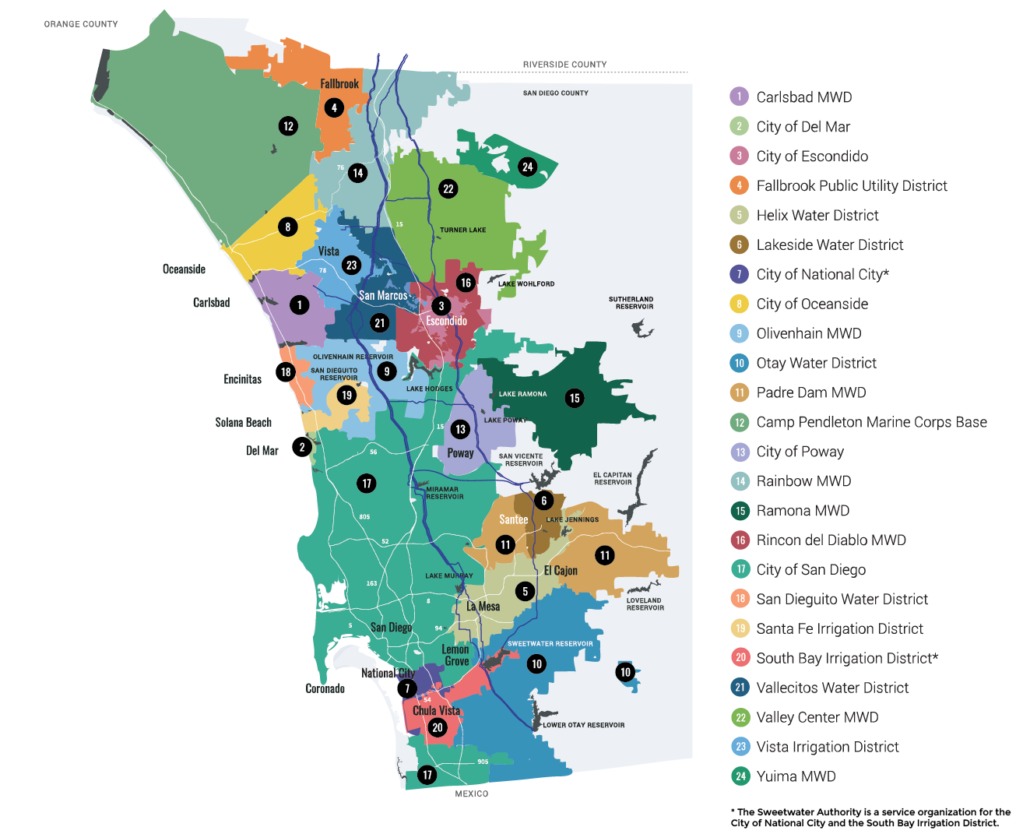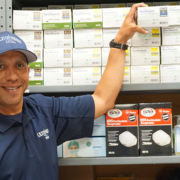Editor’s Note: This feature highlights water utility employees in the San Diego region working during the coronavirus pandemic to ensure a safe, reliable and plentiful water supply. The water industry is among the sectors that are classified as essential. Gary Briant, Olivenhain Municipal Water District Purchasing/Warehouse Clerk, is the Water Utility Hero of the Week.
Water Utility Hero of the Week: Gary Briant
Job/Agency: Olivenhain Municipal Water District Purchasing/Warehouse Clerk
How did you become interested in working in the water industry?
I spent many years working in the private sector. I noticed that my friends and family that worked in the water industry showed a real sense of pride in what they did. I wanted to stop the “rat race” in the private sector and join a team in the water industry where I could grow, contribute my skills, and be a part of something important. Working at OMWD feels like I’m part of a family, and I am very happy in my new career.
How has your job changed during the pandemic?
One of my duties here is to procure materials and supplies for Olivenhain. We have only had a few challenges finding supplies during the COVID-19 pandemic. Our general manager had the insight to make sure we were prepared very early on, so I was able to secure many items before vendors ran out and/or items became backordered for months. When some supplies were not available, we thought “outside the box” to find solutions. For example, we used the recipe from World Health Organization to make our own hand sanitizer when it was sold out everywhere.
How are you keeping safe?
It’s really important to me that I keep myself safe so I don’t put another team member or family member in jeopardy of getting sick. I’ve been focusing on maintaining social distance, sanitizing, and staying healthy. Safety and education has been the main priority at OMWD since the pandemic began. I make sure all needed safety items are well stocked so everyone at OMWD stays well. We have also transitioned to accepting deliveries in a no-contact manner.
What are you most looking forward to after the crisis ends?
I look forward to seeing everything go back to as close to “normal” as possible. I understand we will have to modify many ways that we operate regarding socialization and maintaining a safe work environment. But I look forward to the challenge of helping my co-workers stay healthy so OMWD can continue being successful in its mission to deliver safe and reliable water service to the community.
The Water Utility Hero of the Week highlights essential work performed during the COVID-19 pandemic by employees of the San Diego County Water Authority’s 24 member agencies.






